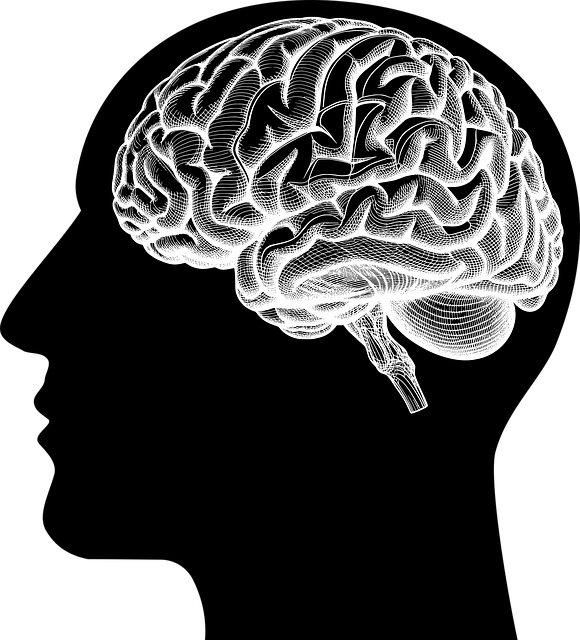Burnout among healthcare providers at Englewood Mental Health is addressed through proactive measures focusing on well-being. Recognizing symptoms early, self-care routines, and stress management techniques are crucial. Englewood Mental Health Evaluations Therapy offers tailored support, utilizing cognitive-behavioural therapy (CBT) and mental wellness coaching to promote positive mindsets and healthy habits. They also foster community building, mental health policy advocacy, and risk management planning for a supportive work environment. These comprehensive strategies aim to prevent burnout, enhance resilience, and improve patient care at Englewood Mental Health Evaluations Therapy.
“Healthcare provider burnout is a growing concern, impacting not only individual well-being but also patient care. This article explores comprehensive strategies to prevent burnout among healthcare professionals. We delve into the root causes, highlighting the significance of mental health evaluations, such as Englewood Mental Health Assessments, in early detection. Additionally, we emphasize therapy and self-care techniques, while advocating for building resilient work environments. By integrating these approaches, the healthcare industry can foster a culture that prioritizes provider mental health.”
- Understanding Burnout Among Healthcare Providers
- Englewood Mental Health Evaluations: A Proactive Approach
- Therapy and Self-Care Techniques for Prevention
- Building a Resilient Healthcare Work Environment
Understanding Burnout Among Healthcare Providers

Burnout among healthcare providers is a growing concern, impacting not just individual well-being but also patient care and overall healthcare system performance. It’s characterized by emotional exhaustion, depersonalization, and reduced personal accomplishment, often stemming from prolonged exposure to high-stress environments, heavy workloads, and lack of support. Healthcare professionals, especially those in demanding fields like mental health evaluations and therapy at Englewood Mental Health, are particularly vulnerable due to the intense emotional investment required in their work.
Recognizing burnout early is crucial for effective prevention. Self-care routine development plays a pivotal role in mitigating risks. This includes prioritizing stress management techniques, engaging in regular physical activity, maintaining adequate sleep, and seeking social support. Additionally, implementing mental health education programs designed to raise awareness about burnout, its causes, and available coping strategies can empower healthcare providers to take proactive measures. Such initiatives, coupled with organizational support and a culture that values well-being, are essential for creating a sustainable working environment in healthcare settings like Englewood Mental Health.
Englewood Mental Health Evaluations: A Proactive Approach

Englewood Mental Health Evaluations takes a proactive approach to burnout prevention among healthcare providers by focusing on early intervention and support. Recognizing that mental health is integral to overall well-being, this program integrates therapy sessions tailored to address work-related stress, anxiety, and depression. By incorporating Mind Over Matter Principles, healthcare professionals gain tools to manage their mental health proactively, enhancing resilience against burnout.
In addition to individual therapy, the evaluations encourage participation in community-building activities that foster social connections and promote a sense of belonging. This holistic approach, combined with resources for Mental Health Policy Analysis and Advocacy, empowers healthcare providers to not only thrive but also contribute to improving mental health policies and practices within their institutions. Furthermore, emphasizing the importance of Self-Care Routine Development for Better Mental Health, Englewood Mental Health Evaluations equips professionals with strategies to maintain a healthy work-life balance, ensuring they can provide optimal care to their patients.
Therapy and Self-Care Techniques for Prevention

Englewood Mental Health Evaluations Therapy plays a pivotal role in preventing burnout among healthcare providers. Through personalized therapy sessions, professionals can explore underlying issues and develop coping mechanisms to manage stress effectively. Techniques such as cognitive-behavioural therapy (CBT) help identify and challenge negative thought patterns, fostering a more positive mindset. Additionally, therapy provides a safe space for professionals to process emotional challenges and improve their overall mental wellness.
Self-care is another crucial aspect of burnout prevention. Healthcare providers are encouraged to prioritize their own mental health by incorporating activities like mindfulness meditation, regular exercise, and adequate sleep into their routines. Mental Wellness Coaching Programs Development can offer guidance on integrating these practices seamlessly into busy schedules. Moreover, building empathy through training and risk management planning for mental health professionals ensures a supportive work environment, reducing the likelihood of burnout.
Building a Resilient Healthcare Work Environment

Creating a resilient healthcare work environment is paramount to preventing burnout among providers. Organizations like Englewood Mental Health Evaluations and Therapy are setting examples by integrating stress reduction methods into their culture. This involves regular staff training on time management, communication skills, and emotional resilience. By fostering an atmosphere that values well-being and work-life balance, healthcare facilities can enhance job satisfaction significantly.
Community outreach program implementation plays a crucial role in building this resilience. Engaging in initiatives that connect with the community not only lightens the workload but also provides a sense of purpose. Additionally, focusing on inner strength development through mindfulness practices, peer support networks, and access to counseling services equips healthcare professionals with tools necessary to navigate challenging situations. These strategies collectively contribute to creating a supportive environment where providers feel empowered, valued, and less prone to burnout.
Burnout among healthcare providers is a pressing issue, but with proactive strategies like those offered by Englewood Mental Health Evaluations, therapy, self-care techniques, and a resilient work environment, it can be effectively prevented. By integrating these measures, healthcare professionals can maintain their well-being, enhance job satisfaction, and continue providing quality patient care.














